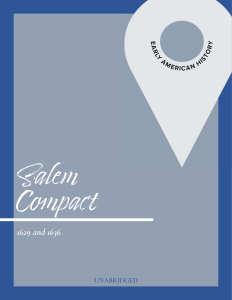
Entrepreneurs accept extraordinary risks that far surpass those faced by ordinary employees.


Capital determines whether a society will be prosperous or poor, well-fed or not, populated by independent and self-reliant citizens or dependent subjects. An abundance of nutritious food, clean water, sturdy homes, safe modes of transportation, reliable sources of heat and power, modern medicines, and many other products and technologies that improve the quality of human life are impossible without capital.
A teacher can help students understand what capital is by encouraging them to think of capital as an individual’s “starter pack” for being productive and getting things done. Capital includes the tools, money, and other valuable resources a person needs to create something of value, or to solve a problem in order to create wealth.
For example, if you wanted to start a lemonade stand, the money you use to buy cups, lemons, water, and a sweetener is capital. While money is an important form of capital, capital can include other resources that help you create wealth for yourself by producing value for others.
Other Kinds of Capital:
Capital is anything you can use to “build” something that will provide experiences of value for other people. Money is the most obvious example of capital, but creativity, friendships, and even your honesty and intelligence, can be just as important, maybe even more important in some circumstances.
So, yes! Capital is cash and more: Capital includes any resource that helps you be more productive. Ask students: What kinds of capital do they have? Maybe it is their energy, ideas, or even their ability to make people laugh. Remind them that everyone—even people with little or no money—have important capital over which each person has much control: A person’s own reputation, honesty, and trustworthiness.
Evaluating incentives
One of the most important questions within any society is: Who will allocate capital? One possibility is that individuals choose whether, how, when, where, and why to spend their own money and invest their own capital. Another option is that political elites within government will tax citizens and confiscate the wealth that others have created, and then those in government will choose how to allocate other people’s their capital.
Individuals choosing how to invest their own capital have strikingly different incentives than politicians and bureaucrats in government spending other people’s money.
As we discuss in another section, profit is the happiness of other people. When individuals and business owners make their own choices about how to allocate and when to invest their own capital, they aim to earn a profit—they want a return on their investment—which is another way of saying they’re trying to make other people happy by producing value for them.
When those in government choose how to spend other people’s money, they serve their own interests, usually by expanding the scope and power of government. That is worth repeating: Business owners allocate their own capital in order to make a profit for themselves by making other people happy; government allocates other people’s capital in order to extend the power and control of government.
Every new government spending program, after all, requires expanding the class of unelected bureaucrats, adding new levels of control over what citizens may do, and adding new kinds of taxpayer-funded government competition to businesses and other private organizations.
Incentives of Allocation
For politicians and bureaucrats, resource allocation often means achieving political ends or aiming for short-term gains. Without direct knowledge of costs or profits, these decisions can be quite unpredictable.
When private individuals choose how to invest or spend their own money, they have strong incentives to make careful, strategic decisions. If they invest wisely, they personally reap the rewards; if they invest foolishly, they suffer the losses. This direct link between decisions and consequences encourages efficiency and accountability. Individuals are motivated to seek the highest return (or best use) for their funds, and they also bear the risk of losing their capital if a project fails.
By contrast, when those in government take capital from citizens through taxation, politicians and bureaucrats end up allocating resources that are not their own. As a result, several distortions can arise:
In short, when individuals allocate their own funds, they have personal incentives—financial risk and reward—to be careful stewards of their capital. When governments collect taxes and decide how to spend them, officials are allocating other people’s funds and often do so under weak or no incentives for efficiency, with less direct accountability for mistakes, and with political or bureaucratic considerations that can overshadow the goal of maximizing societal well-being.
 Nº1
Nº1
Description
Download PDF Download ePub Button 3
Entrepreneurs create value and improve the quality of life for many people. And what distinguishes entrepreneurs from non-entrepreneurial people? Their willingness to accept high levels of risk—calculated, strategic, and informed risk, but still, risk—including risking their own capital up to and often including everything they own.
Entrepreneurs accept extraordinary risks that far surpass those faced by ordinary employees. Their willingness to risk losing financial resources, stability, and even their own health and personal well-being drives entrepreneurial innovation, economic growth, and social progress. Here’s why the risks of entrepreneurs matter and why others should be grateful.
1. Risks Unique to Entrepreneurs
Entrepreneurs face existential risks that employees rarely encounter:
– Financial Ruin: They often invest personal savings, take out loans, or mortgage assets (homes, retirement funds) to fund entrepreneurial If the business fails, they bear the debt, which in some cases can be financially ruinous.
– Opportunity Cost: An entrepreneur spends years building a business—sometimes building a business that ends up failing—years that could have been spent in stable careers while working for others who take risk. Employees, by contrast, earn steady wages and can easily leave one job for a better job at another business. usually without catastrophic loss.
– Personal Liability: Sole proprietors or small-business owners risk lawsuits, bankruptcy, or credit destruction if ventures collapse. Employees are shielded from company debts.
– Emotional Toll: Entrepreneurs endure chronic stress from uncertainty, isolation, and responsibility for others’ livelihoods (employees, contractors). Burnout rates are high. An entrepreneur might pace the floor late at night, unable to sleep, ulcers eating away at his stomach, a nervous wreck because he does not know for sure how he will make payroll at the end of the week.
Employees don’t have these worries. The most an employee risks, typically, is working two weeks without receiving a paycheck, at which point an employee is free to quit and look for other job opportunities (or start his own business).
2. Why Employee Risks Are Smaller
Employees operate with built-in safety nets:
– Predictable Income: Salaries, benefits (healthcare, retirement), and legal protections (unemployment insurance) buffer financial risk.
– Mobility: Employees can quit jobs without personal financial collapse, leveraging skills elsewhere. Entrepreneurs cannot easily “quit” a failing business without cascading consequences, including a highly-damaged reputation.
– Limited Liability: Employees are not personally liable for company failures; entrepreneurs often are.
3. The Entrepreneur’s Gamble: High Risk, High Reward
Entrepreneurs risk everything not just for profit, but to solve problems and create value. Their bets yield societal benefits even when they fail:
– Innovation: Most breakthroughs (e.g., smartphones, renewable energy, medical tech) began as risky entrepreneurial ventures.
– Job Creation: Small businesses create the majority of new jobs in the U.S.
– Economic Resilience: Entrepreneurs diversify markets, challenge monopolies, and adapt to crises (e.g., pivoting to supply bottled water after a hurricane to people who have no clean drinking water).
– Inspiration: Failed ventures provide blueprints for others, accelerating collective learning.
4. Why Society Should Be Grateful
Entrepreneurs accept risks that others avoid, enabling real social, cultural, economic, and material progress:
– They Bear the Burden of Uncertainty: For every success story (e.g., Apple, Airbnb), many entrepreneurial ventures fail. Approximately 85% of new start-up businesses fail within 18 months. Entrepreneurs endure this volatility in order to produce value for others.
– They Fuel Dynamism: Without risk-takers, economies stagnate. Employees rely on entrepreneurs to create the companies where they later find jobs.
– They Model Resilience: Entrepreneurs persist despite setbacks, embodying grit that inspires cultural and technological advancement.
While employees contribute stability, entrepreneurs drive transformation. Their willingness to “risk everything” is not reckless—it’s a calculated risk, usually after great study and analysis of a market, for potential reward. Society benefits disproportionately: A single successful entrepreneur can uplift thousands (e.g., Henry Ford’s assembly line revolutionized labor and mobility). Even failures (e.g., bankrupt startups) refine markets and spur new ideas.
Entrepreneurs are society’s risk-bearers, gambling personal security to advance collective prosperity. Their courage to fail—and resilience to try again—creates the innovations, jobs, and opportunities that define progress. While employees provide essential stability, entrepreneurs propel us forward. Gratitude is owed not just for their successes, but for their willingness to shoulder risks that few would dare. Risk-taking entrepreneurs are heroes we should celebrate.

